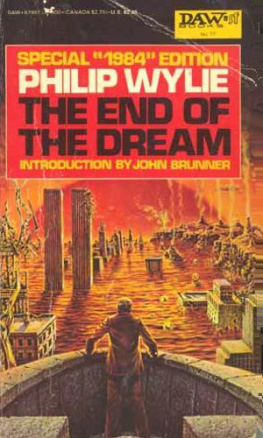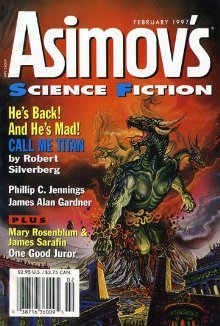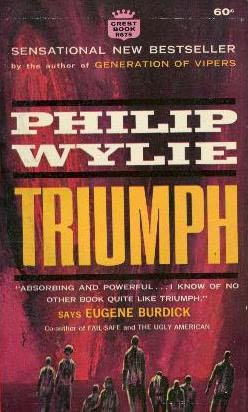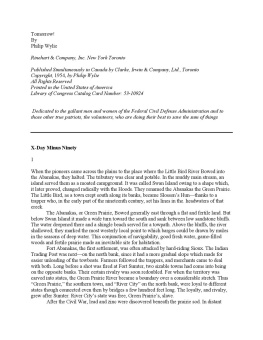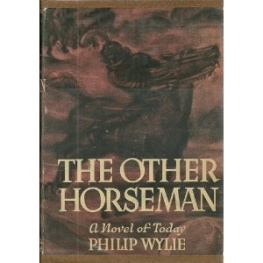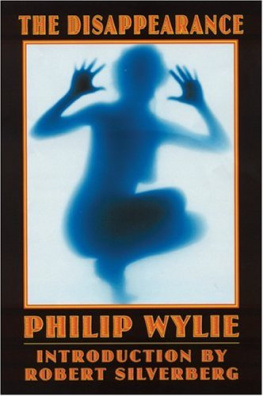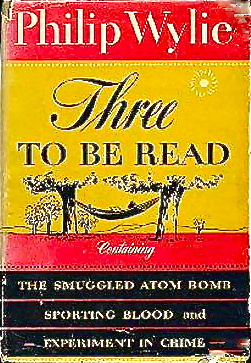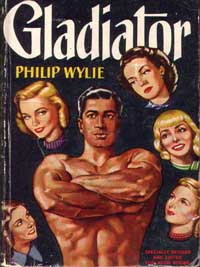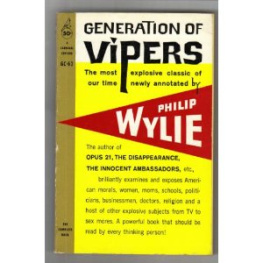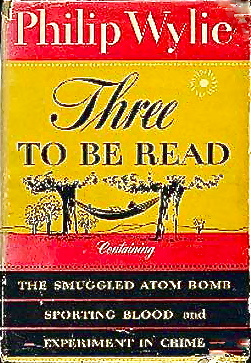Phillip Wylie - The End of the Dream
Here you can read online Phillip Wylie - The End of the Dream full text of the book (entire story) in english for free. Download pdf and epub, get meaning, cover and reviews about this ebook. year: 1984, publisher: DAW, genre: Detective and thriller. Description of the work, (preface) as well as reviews are available. Best literature library LitArk.com created for fans of good reading and offers a wide selection of genres:
Romance novel
Science fiction
Adventure
Detective
Science
History
Home and family
Prose
Art
Politics
Computer
Non-fiction
Religion
Business
Children
Humor
Choose a favorite category and find really read worthwhile books. Enjoy immersion in the world of imagination, feel the emotions of the characters or learn something new for yourself, make an fascinating discovery.
- Book:The End of the Dream
- Author:
- Publisher:DAW
- Genre:
- Year:1984
- Rating:4 / 5
- Favourites:Add to favourites
- Your mark:
- 80
- 1
- 2
- 3
- 4
- 5
The End of the Dream: summary, description and annotation
We offer to read an annotation, description, summary or preface (depends on what the author of the book "The End of the Dream" wrote himself). If you haven't found the necessary information about the book — write in the comments, we will try to find it.
The End of the Dream — read online for free the complete book (whole text) full work
Below is the text of the book, divided by pages. System saving the place of the last page read, allows you to conveniently read the book "The End of the Dream" online for free, without having to search again every time where you left off. Put a bookmark, and you can go to the page where you finished reading at any time.
Font size:
Interval:
Bookmark:
Introduction to this edition by John Brunner
COPYRIGHT, 1972, BY FREDERIKA B. WYLIE
as Executrix of the Estate of Philip Wylie.
A DAW Book by arrangement with Doubleday & Co., Inc.
ALL RIGHTS RESERVED.
COVER ART BY RON WALOTSKY
FIRST PRINTING, NOVEMBER 1973
by JOHN BRUNNER
Perhaps, one of these days, archaeologists will come to Earth from another planet and think of erecting a monument to mark our passing. If so, they could choose no better inscription for it than this:
Here lies a species capable of thinking, but too lazy to think anything right through.
Was he a bitter man, this Philip Wylie? After reading The End of the Dream you may suspect so. I think not. I think he was simply cursed with what too many of us would regard as a terrible gift. He did think things through.
If there is such a thing as divine anger, it follows that there must also be its low-key counterpart, divine impatience, and that gave novel after novel from Philip Wylies impressive output a distinctive individual stamp. Once, for example, there was Gladiator, in which a remarkably convincing superman (note: super-man, a whole person but magnified) found himself hamstrung and handicapped not by the malevolence but by the sheer incompetence of ordinary people.
Likewise there was Finnley Wrenn, with its classic description of a house-party where
the tools of contraception are as easily accessible as faucets, and where the narrator was asked the classic question, Dont you think your childrens children will go away for weekends like this, and only like this?
He wrote that when I was a child in arms, and the Sexual Freedom League was not yet dreamed of by its founders.
Also, of course, there was Generation of Vipers, where he trapped fault upon flaw of our contemporary society like so many rattlesnakes writhing under forked sticks. (I am told that rattlers are deadlier than vipers, and what he picked on was definitely deadly.) There was Opus21, which will give any non-writer an astonishing insight into what happens in a writers head while hes at work. There was The Disappearance, concerned not so much with trapping as with dissection... or would a better word be flaying?
And so forth. But this book, this here that you hold, was his last. Which makes me sad.
Would one not wish that an author, gifted, admired, who labored long and industriously and with much success at his craft, could leave as his legacy a work reflecting contentment, a sense of achievement, as it were a rounding-off?
Indeed that would have been ideal. But the way youve made the world, it doesnt come out like
Yes, I did say, and Ill say again, louder: THE WAY YOUVE MADE THE WORLD.
And are still making it. If you are old enough to read the print on these pages, youre old enough to be responsible for at least some of the mess were in. I believe that is what Wylie himself would have wanted to tell you. If it hadnt been, he wouldnt have written a book like this one.
right at the end-point of his life.
Dont think what youve got hold of is simply a novel. It is one, because how else than in fiction do you deal with events that havent happened? (A RAND scenario, or a projection from the Hudson Institute, is just as much fiction for all its formal trappings; remember that!) But what you have here is a prophecy in the most ancient sense of all: not a prediction of what certainly will come to pass, but a description of what is likely to come to pass unless people mend their ways. You cant define Wylie as a voice crying in the wilderness becausehell, wheres the wilderness? Its been logged off and used as a dump!
No, rather he was a voice crying in the jungle of an urban slum, in the desert of a used-car lot. Heres what he last had to say. Listen, and may you have bad dreams.
But may they not come to an end like the one which gives this book its title: in dirt and squalor and misery and sorrow. May you at least have the chance to wake again, and change the opinions of yesterday for others less glamorous, less deceitful... and more wise.
J.K.H.B
An Impossible Task
The date (Old Calendar) was June 6, 2023, and the place, Faraway, New York, again in the Old Geography.
Faraway, a twenty-five-thousand-acre stand of largely virgin timber, lies in the Adirondack Mountains somewhat to the north and west of the familiar Placid-Saranac vacation region. It was owned by Miles Standish Smythe and his sister Nora, and had been in the family since 1854. It had been the hideaway of a group of Eastern millionaires who had constructed a huge central lodge and a number of cottages together with service buildings and homes for guides on the northern shore of the largest of three bodies of water within its fenced boundaries, Lake Enigma. The other two were less than a mile at their widest points: Big Panther and Little Panther ponds.
Originally, the only means of reaching the camp, as its owners called it, was by rail, a spur fifteen miles long served by a single small locomotive and a rolling stock of three baggage cars and one very elegant private car. Massive iron gates barred the spur, which was, by intention, seemingly blocked by a hardwood scrub. Behind that barrier and invisible from the main line was a guards house, initially occupied by a dull-witted chap named Seth Bartlet and his more capable wife, who had seen to it for more than a decade that none but club members and guests entered the property.
A fire in the winter of 1853 had destroyed the lodge and several cottages, after which the aging members decided to sell the tract. It was purchased by Daniel Smythe, who built a lodge of modest proportions and new cottages. Faraway then became the summer resort and hunting preserve of Daniel Smythe, his family and their descendants.
Early in the twentieth century that lodge had been replaced by an immense clubhouse of fieldstone, and over the years various members of the family and numerous friends had built elaborate summer places along the shore of Lake Enigma. The property included several mountains, and through the uncut forest ran the Mystery River and several tributary creeks. The Mystery fed Lake Enigma and Bowed from it, underground, for some miles, which presumably all counted for the names of both the lake and the small, clear river.
There were, of course, other Private holdings as fast in the Adirondacks. But more of them had repeatedly known the ring of axes and later the snarl of power saws. None had maintained through the twentieth century a comparable stand of virgin forest. Not surprisingly, Faraway bad been the last northern refuge of the ivory bill and was, still, one of the few places in the Adirondacks populated by otters, fishers and martins. In very cold winters it also became the range of wolves, driven south from Canada by hunger.
The ran spur had long since been replaced by a fifteen-mile graveled road still guarded by descendants of Seth Bartlet.
When, on Miles Smythes twenty-first birthday, it came into his and his sister Noras possession, he maintained it in the customary way, security measures included. In his boyhood he had spent his summers and many a winter vacation at. Faraway. In the long and the shorter periods one of the resident guides had trained him and his young friend Willard Gulliver in the northwoodsmans skills. But, though he accepted his heritage with aplomb, he did not, visit Faraway for several summers. He had graduated from Princeton magna cum laude, and immediately launched the Foundation which had begun in his precocious teens as a response to anger in the form of a creative dream. The Foundation for Human Conservancy made Miles a world figure but failed in its purpose as Miles had surely expected from the start.
Next pageFont size:
Interval:
Bookmark:
Similar books «The End of the Dream»
Look at similar books to The End of the Dream. We have selected literature similar in name and meaning in the hope of providing readers with more options to find new, interesting, not yet read works.
Discussion, reviews of the book The End of the Dream and just readers' own opinions. Leave your comments, write what you think about the work, its meaning or the main characters. Specify what exactly you liked and what you didn't like, and why you think so.

